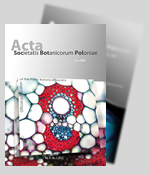Abstract
Pea seed lots (of big and small densities and a control) were stored for six months in hydrostats in relative air humidity 90 and 50 per cent, at 21°C. Viability was determined on the basis of germination rate (energy) and capacity; vigour on the basis of sprout growth analysis, conductometric measurements and over-all dehydrogenase activity in the embryonic axes (tigella). Seeds stored in a high relative air humidity were losimg their viability and vigour more quickly than did those stored in a dry air. Seeds of big density were preserving better and ageing slower than seeds of small specific gravity.







